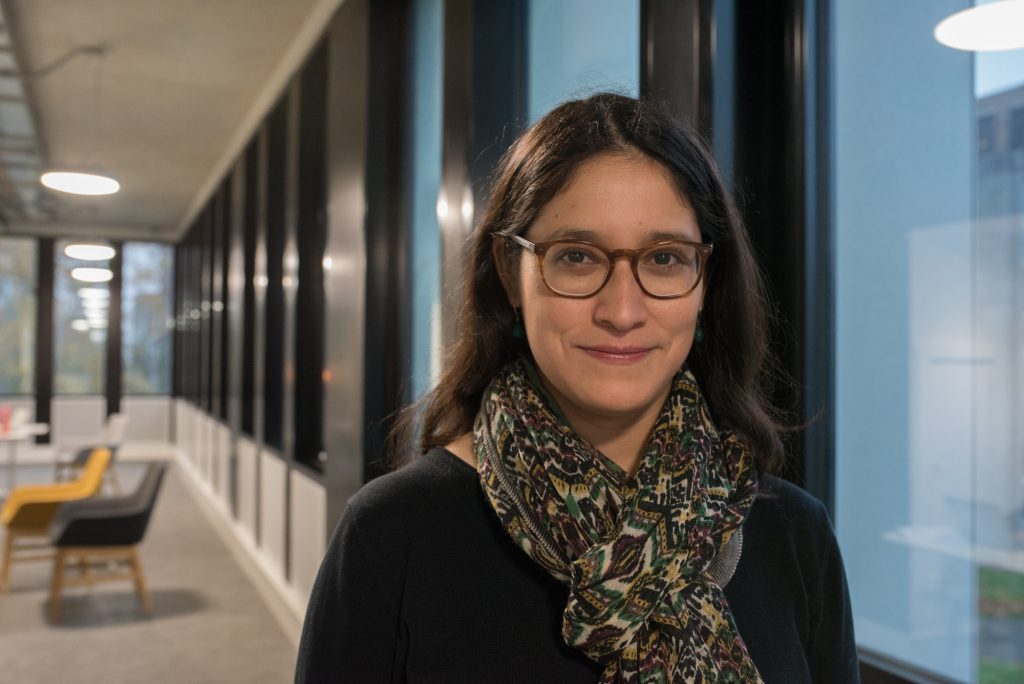A two-month visit to Kent Law School proved “crucial” for doctoral legal scholar Natalia Torres Zuniga who found the exposure to critical theory and socio-legal studies to be pivotal for the development of her thesis.
Natalia spent two months at Kent as a PhD Visiting Student. Originally from Peru, Natalia is studying her PhD at the Norwegian Centre for Human Rights in the Faculty of Law at the University of Oslo.
Natalia said: ‘The period in Kent was crucial for my thesis. This is the first time that I have been in real contact with academics working with critical theory and socio-legal studies. During my stay, I attended the PhD study group and discovered new literature and new topics of interest. Participating in the Marxist reading group was also a great experience because I realised that “academia” at Kent means plurality. Here I could see that there is a joint dialogue driven by academics using different critical approaches, regardless of the differences in their thought.’
The title of Natalia’s dissertation is ‘The Inter-American Court of Human Rights and its Legitimacy: The Limits of Analogy, Subsidiarity, and Democratic-Transformation.’ Natalia said: ‘My project engages critically with the notions of constitutional analogy, the principle of subsidiarity, and the argument of democratic transformation that Latin American academics use in order to profile the Court (IACtHR) as a supranational tribunal with constitutional powers whose last say on the protection of human rights transforms the developing Latin American democracies. I work with a Marxist approach to international law. In that sense, I use the concepts of false contingency and ideology to demonstrate how portraying the Court as a supra-constitutional actor hides a distrust towards people as entities capable of generating their emancipation and profile them as passive subjects in need of institutional aid.
‘The larger conclusion of my thesis is that the current discussions on the democratic legitimacy of the IACtHR show how legal experts enact processes of self-validation, which places them and the Court, as the principal agents of transformation of human rights and democracy. My thesis invites us to decentralise our focus on formal legal institutions like the Court and proposes an engagement with the idea that ordinary people can be actors mobilising and defining the content of law for the transformation of their territories.’
To help tackle the internal structure of her thesis, Natalia prepared an abstract comprising the core elements of the project. This became a route map for writing her final draft and the two chapters that she wrote at Kent were well received by her supervisors in Oslo. She was particularly grateful for the opportunity to work with Dr Luis Eslava: ‘He took the time to understand the main aspects of my project and helped me look at elements of my thesis that needed to be sharpened. He challenged my conceptions and relative scepticism of law as a tool of transformation and encouraged me to learn more about TWAIL (Third World Approaches to International Law). The experience has boosted my engagement with law as a device to resist and challenge the inequalities and political structures that rule our world.’
Natalia also enjoyed the diversity of the student body at Kent, meeting PhD students from Zimbabwe, Bulgaria, Thailand, Russia, Australia, Israel and the USA among others: ‘All of them come with different backgrounds, but at the same time, they share the same interest in studying and using law beyond the traditional way. I am impressed by their research topics and I am looking forward to seeing their contributions in the future.’
During her stay in on-campus accommodation at Kent, Natalia made good use of the University’s library and Sports Centre and borrowed a bicycle from the Sports Cycle Hub: ‘I did some rides from the University to Sandwich, Whitstable, and Chartham. Using the bike helped me to take a break from my dissertation. I recommend doing some walks, for example, to visit the White Cliffs in Dover or to explore some parts of the North Downs Pilgrims Way. I had the chance also to go to London to attend to some art exhibitions that were free and outstanding. Canterbury and London are very well connected, and the system of public transportation is efficient. It takes one hour to go to London by train.’
Natalia has no hesitation in recommending Kent to other PhD scholars and hopes to return to be able to present the outcome of her research (or as a visiting researcher): ‘I discovered the broadness of critical legal studies and I became aware of how much I still have to learn! After this stay, one of my tasks is to deepen my knowledge of critical legal studies.’
Natalia has now returned to Oslo and hopes to complete her thesis in February 2019. Her initial plan after that is to find a postdoctoral position in Norway: ‘My primary interest is to continue working with the situation of human rights, democracy, and development in my home country of Latin America.’

